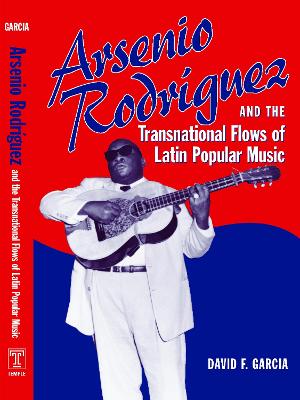Studies In Latin America & Car
1 total work
Arsenio Rodríguez and the Transnational Flows of Latin Popular Music
by David Garcia
Published 23 June 2006
Arsenio Rodr\u00edguez was one of the most important Cuban musicians of the twentieth century. In this first scholarly study, ethnomusicologist David F. Garc\u00eda examines Rodr\u00edguez's life, including the conjunto musical combo he led and the highly influential son montuno style of music he created in the 1940s. Garc\u00eda recounts Rodr\u00edguez's battle for recognition at the height of \u0022mambo mania\u0022 in New York City and the significance of his music in the development of salsa. With firsthand accounts from relatives and fellow musicians, Arsenio Rodr\u00edguez and the Transnational Flows of Latin Popular Music follows Rodr\u00edguez's fortunes on several continents, speculating on why he never enjoyed wide commercial success despite the importance of his music. Garc\u00eda focuses on the roles that race, identity, and politics played in shaping Rodr\u00edguez's music and the trajectory of his musical career. His transnational perspective has important implications for Latin American and popular music studies.
